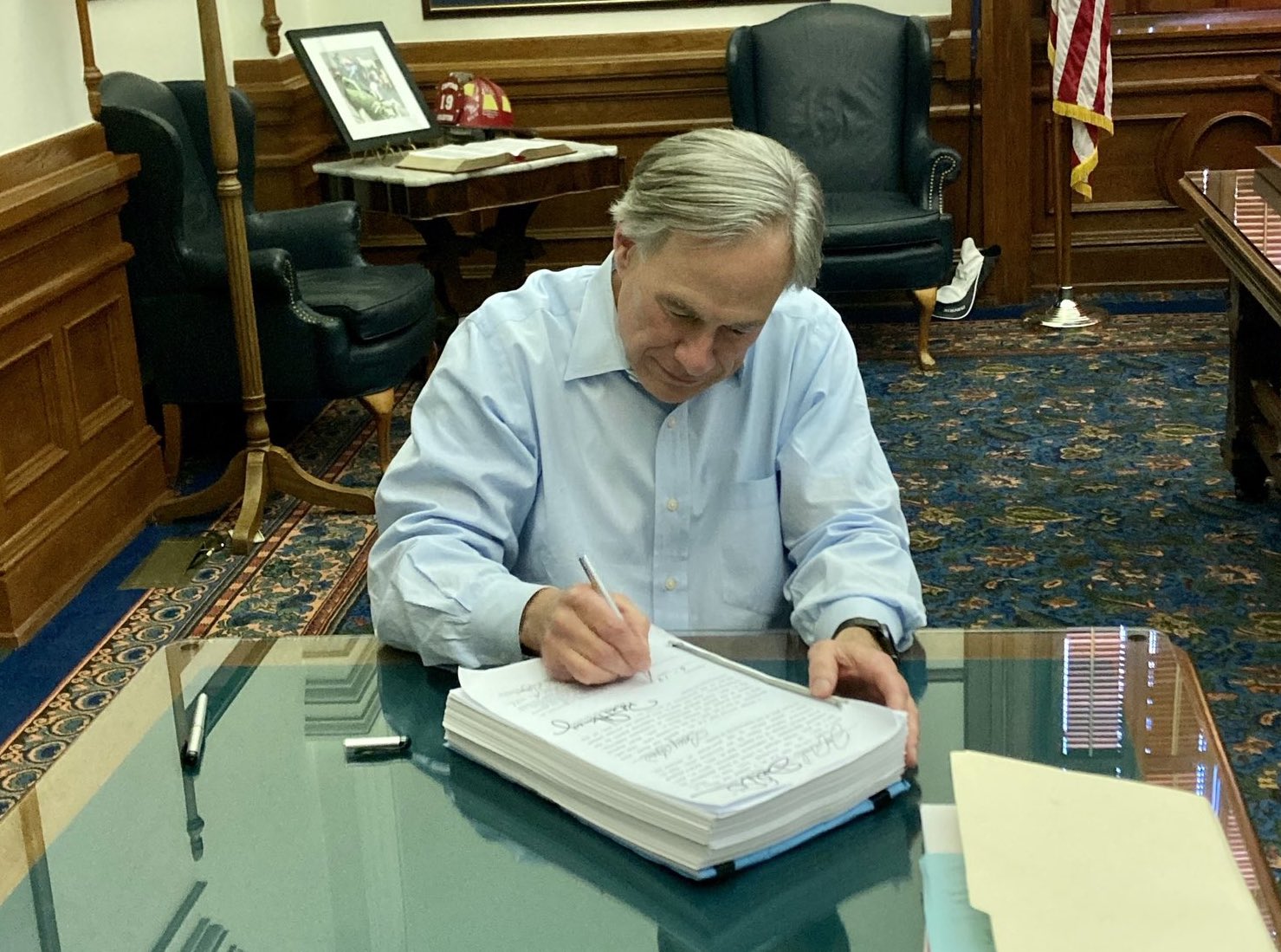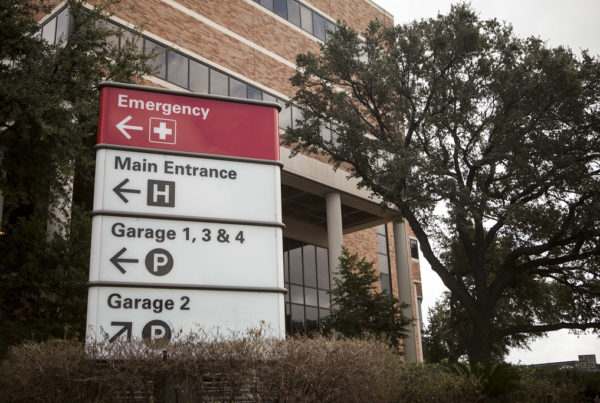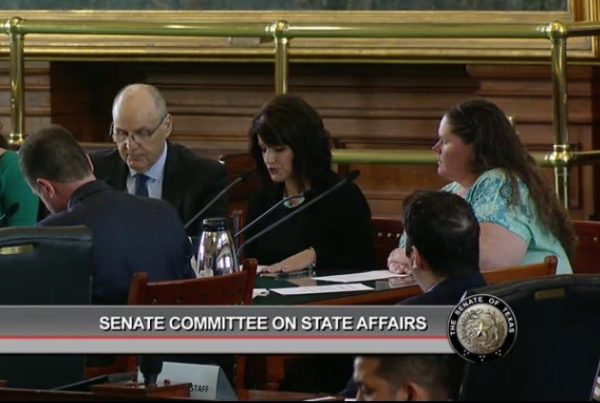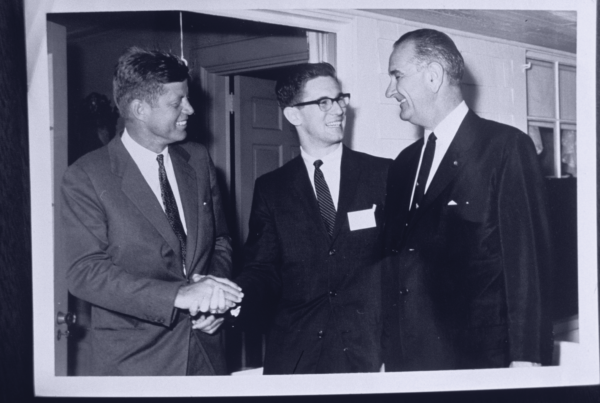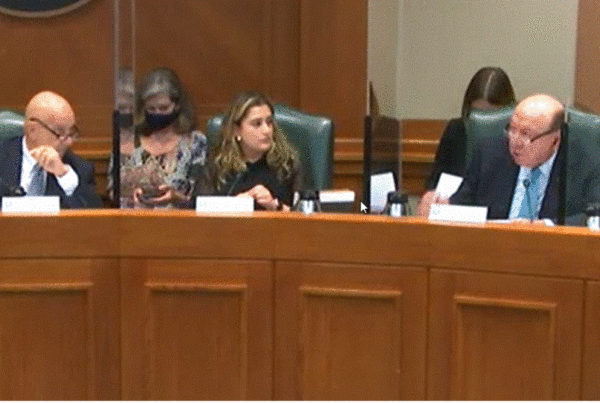Texas is set to receive over $35 billion for infrastructure upgrades through the recently passed Infrastructure Investment and Jobs Act. But Gov. Greg Abbott wants state agency heads to be careful before accepting any money.
Earlier this week the governor wrote a letter asking agency leaders to “please consider all of the requirements, particularly new ones, and carefully assess their implications” before accepting federal funds.
Jim Riddlesperger, professor of political science at TCU, spoke to Texas Standard about the kinds of conditions the governor’s referencing, and the political dimensions of accepting the funds.
Listen to the interview above or read the transcript below.
This transcript has been edited lightly for clarity:
Texas Standard: In his letter to state agency heads, the governor is urging caution about requirements and conditions. What might those look like? What do you think the governor has in mind here?
Jim Riddlesperger: There are several things going on. Of course, the problem at its root is that the relationship between the national government and the state government is inextricably intertwined. More than a third of the money that Texas will spend this year will be money that they got from the national government. So there is no way to extricate the state from federal spending. So what we’re seeing here is Gov. Abbott trying to make sure that that Texas doesn’t unknowingly commit itself to spending a lot of money, that it is not appropriated. So that’s the that’s the core problem.
What kind of sway does the governor generally hold over the heads of the various state agencies?
Texas has a very decentralized executive. We not only have an elected governor, but we also have an elected attorney general, elected agriculture commissioner, elected commissioner of the General Land Office and so forth. So the governor is not in a strong administrative position in in Texas compared to other states.
But of course, part of the problem here is ideological. Gov. Abbott really is opposed to some spending on a legitimate basis, but at its root, the biggest problem is a lack of trust. The simple reality is that Texas has not trusted the national government for years. We could see this when Gov. Perry was in office and Texas refused to accept additional Medicaid money, even though the people of Texas needed it very badly. There was worry that it might create a dependency on the national government and then federal funding would be withdrawn, leaving Texas with a bill that it couldn’t pay. And so what we’re seeing here is a continuation of that kind of lack of trust.
is this common in state governments for four chief executives to reject federal funds like this?
it was not common until recent years. And in fact, we’ve seen kind of a split within the Republican Party. Democrats have rarely had any problems accepting federal funds. So in the states where Democrats are in control of the government, it’s more or less a de facto acceptance when the bill is passed by the national government. But we’ve seen, for example, in Ohio and in several other states where Republicans have been in charge, where the Republicans said that it was an obligation on behalf of the people of their state to accept those federal funds, even if they disagreed with the program ideologically. Texas is one of those states, though, that has been very reluctant to accept federal funds because of the extraordinarily conservative nature of the Republican Party in the state.
What about that political dimension? Next year is a big election year statewide. What do you think?
There’s no question that in addition to the ideological differences, in addition to the lack of trust, in addition to the fact of the objective problem of potentially creating a dependency, there’s political gamesmanship going on here. And obviously, Gov. Abbott is trying to establish himself as a fiscal hawk on government spending and to place himself among that handful of Republicans who might be potential presidential candidates in 2024 if President Trump does not choose to run for reelection. And it also has the same effect in the Republican primary in Texas, where Gov. Abbott has some high profile opponents, even for the Republican nomination. He does not want to be vulnerable on his right flank to either Allen West or to Don Huffines.


